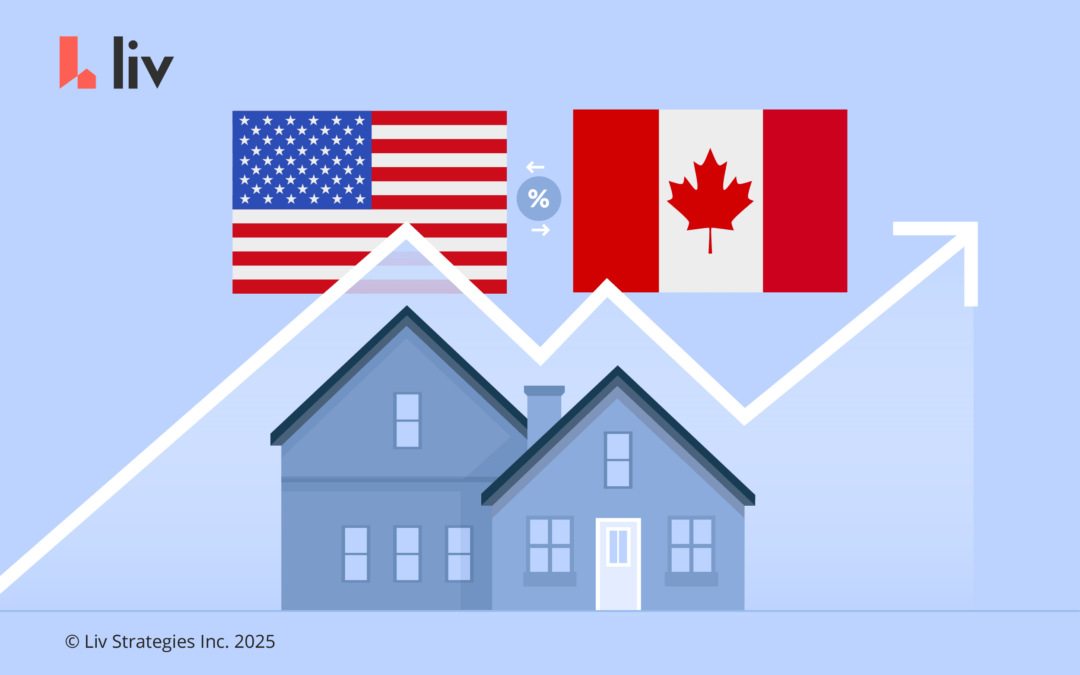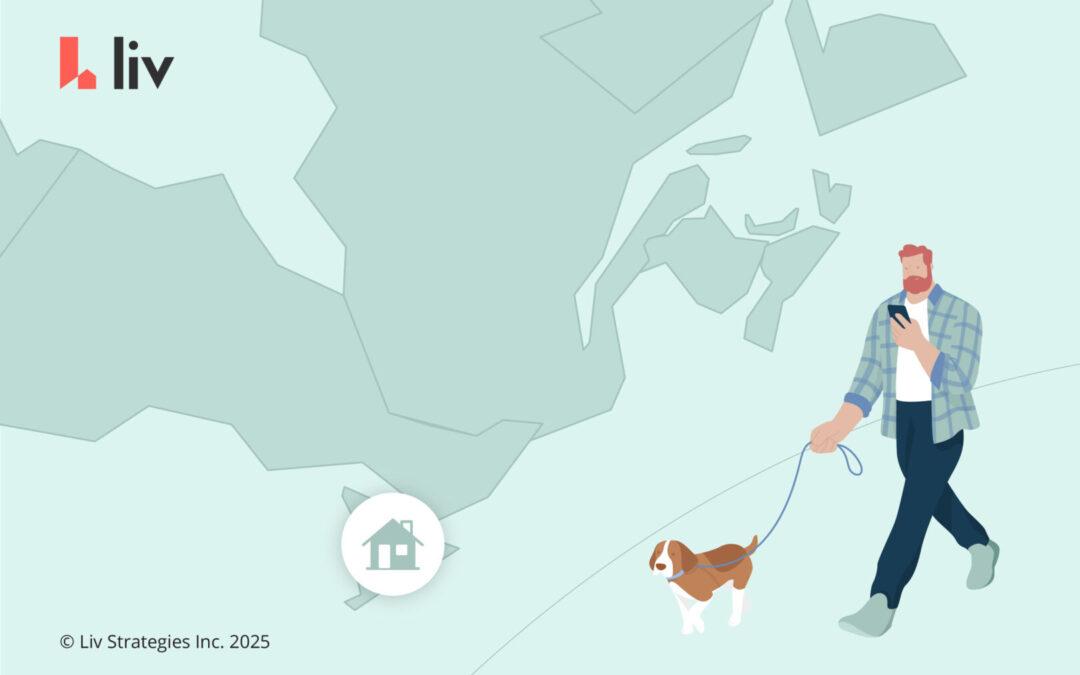For homeowners who find themselves with extra space, renting out a room in your house is a fantastic way to add an additional income stream and help pay off your mortgage. Becoming a landlord is a fairly straightforward endeavour, however, there are some crucial aspects to consider if this is your first time renting out property. The most important part of renting successfully is finding the right tenants to fill your room, as this helps prevent disagreements and ensures you always receive rent on time. This guide from liv.rent will walk you through renting out a room in your house for the first time, including how to identify reliable renters and avoid some of the most common pitfalls of renting online.
Post unlimited listings for free
Do you need to advertise multiple rental listings? Look no further. Post as many listings as you want on liv.rent – all for free.
Can you rent a room in your house in Canada?
So long as your local legislation permits it and the space you’re planning on renting meets a few basic prerequisites, renting out a room in your house is not only legal but is fairly easy to do with the right knowledge and tools.
First, though, it’s important to double-check that your local zoning regulations allow for renting, as well as consult any specific regulations from your Homeowner’s Association or strata, if applicable.
The exact rules for renting out a room in your house vary by province, but Canadian landlords will all follow a similar process to ensure the space is legal. Before you go ahead and list your unit for rent, you’ll need to do the following:
- Check the zoning requirements and building codes in your area to ensure the room is legal
- Obtain a business license and/or rental permit from your local municipality
- Make sure your basement suite meets the safety and fire regulations set out by the province
- Ensure that your rental agreement is in line with your province’s equivalent of the Residential Tenancy Act.
Pros and cons of renting out a room in your house
As with any major decision, renting a room in your primary residence comes with its fair share of positives and negatives. Whether the potential rewards outweigh the risks is up to each individual landlord to decide, but here’s a basic breakdown of the things you’ll need to take into account.
Pros of renting out a room in your house
- Rental income — The main appeal of renting part of your house is the added income it brings in. For landlords who could use a little extra help covering mortgage payments and expenses in the current market, having a steady stream of rental income without needing to purchase an additional property is a huge benefit.
- Shared expenses — Costly bill payments like internet and electricity can be split with tenants, helping to bring down your overall expenses and boost your profitability.
- Creating housing — Rental housing is constantly in high demand in Canada’s major cities, and renting out a room helps add much-needed options to a thin market.
- Flexibility — Compared to purchasing and renting a dedicated rental property, renting out a room in your house is a convenient and cost-effective way to become a landlord.
- Potential tax benefits — Landlords can offset their taxable rental income by claiming expenses related to renting, further boosting the profitability of their new rental unit.
Cons of renting out a room in your house
- Loss of privacy — Renting out a room isn’t for everyone, and some landlords may find it difficult to live in close quarters with someone they don’t necessarily know all that well.
- Risk of non-payment/damage — The wrong renters can cause serious headaches for homeowners, including damaging the property, not paying rent, and disturbing you and your neighbours. Thankfully, it’s easier than ever to find reliable tenants through advanced tenant screening solutions like the Trust Score.
- Legal liability — Landlords must ensure that their rental property and lease agreements comply with local & provincial legislation at all times, and are responsible for the cleanliness and safety of the room.
- Added responsibility — While there won’t be too many extra responsibilities to worry about, landlords will need to ensure they stay on top of maintenance and repairs to keep the room in tip-top shape for their tenants.
What do you need to rent out a room?
There’s more to renting out a room in your house than posting a listing and signing a contract. By renting out part of your room you’re officially becoming a landlord and will need to take a few key steps to ensure that you’re compliant with your province’s rental laws. Once again, the exact guidelines vary by province and municipality, so always consult your local regulations for exact requirements.
Here’s a quick breakdown of what homeowners should consider before renting out their rooms:
- Safety — Each province and municipality will have specific guidelines for safety standards of rental units. Generally speaking, your room will need to have windows, properly installed plumbing fixtures, and other things like a clear fire exit to ensure tenants’ safety.
- Business license — Homeowners renting out rooms in their house will first need to obtain a short- or long-term rental business license. These can typically be obtained from your local business license office for a fee once you’ve met the above safety considerations and filled out the necessary paperwork.
- Local tenancy laws — Each province has its own guidelines for residential tenancies. As a landlord, your duty is to ensure that you’re following these laws and upholding your responsibilities.
- Lease agreement & Addendums — Lease agreements are the formal contracts governing tenancies in Canada. Most provinces like B.C., Ontario, and Alberta have a standardized form available for download, but you can also create your own lease so long as it complies with your local tenancy laws. Adding lease addendums for things like parking, laundry, and utilities is another great way to bulletproof your lease and ensure that you’re protected from any possible disputes during the tenancy.
- Rental management software — In today’s world, most landlords rely on digital tools to help run their rental business. These sophisticated programs can cover everything from listing to tenant screening and creating & signing leases, making your job far more manageable. One such platform is liv.rent – an all-in-one rental management solution with digital tools for Canadian landlords. With built-in comprehensive tenant screening through the Trust Score and a community of verified renters, this complete program helps take the guesswork out of renting.
Tips for renting out part of your home
Being well-prepared and educating yourself on your rights and responsibilities as a landlord is key to ensuring that everything goes as planned. Below are some of our top tips for first-time landlords to enjoy a stress-free tenancy and maximize their profits.
- Know how much to charge for rent — Pricing your unit correctly is key to renting it out as quickly as possible while ensuring you’re earning enough profit. Researching the latest rent prices in your area for comparison is a great place to start, or for a more personalized evaluation, you can book a free 15-minute listing assessment with one of our liv.rent Rental Experts. We’ll look closely at your listing’s details to help you maximize your reach – including a complimentary rent estimate so you can be confident with your price.
- Be thorough with your tenant screening — Doing your due diligence during the tenant screening process helps to eliminate the risk of damage and missed rent payments caused by troublesome tenants. Credit checks are a great tool for landlords to evaluate a renter’s financial capabilities, but often don’t give a complete picture of their suitability. Instead, try using an all-in-one tenant screening metric like liv.rent’s Trust Score. This complete tenant screening tool factors in tenants’ income & employment verification, income-to-rent ratio and public court records to provide a more accurate report of their quality as a renter. It’s also a good idea to have a detailed list of questions ready to ask any applicants.
>> Recommended Reading: The Trust Score: Explained For Landlords And Renters
- Study up on tenancy laws — Each province has its own guidelines protecting tenants during the rental process. Be sure to consult your province’s residential tenancy act to familiarize yourself with what is and is not permitted. To help first-time landlords make sense of Canada’s different rental laws, liv.rent has compiled a handy Landlord Resource section of our blog.
- Share your listing to reach more renters — Marketing is key to filling your unit as efficiently as possible. One way landlords can expand their reach is to use a platform that allows for easy listing sharing. On liv.rent, landlords can quickly share their listing to Craigslist, Facebook Marketplace and Kijiji with just a few clicks. You can read more on liv.rent’s marketing features here.
- Use a checklist — There’s a lot that can be missed throughout the rental process, particularly if it’s your first time renting out property. To help make sure you don’t miss any important steps and are protecting yourself as you’re renting, it’s a good idea to have a checklist on hand for things like preparing and inspecting the rental property, advertising your listing, and screening tenants.
Renting your room on liv.rent
There are plenty of advantages to listing your room for rent on liv.rent. Designed specifically for modern landlords in Canada, this all-in-one platform has digital tools for every step of the rental process. In addition to the Trust Score, landlords can post unlimited listings for free as well as access time-saving features like built-in sharing and digital contracts & rent payments. For first-time landlords in particular, things like a centralized inbox for tenant communications and income statements can help you stay organized while maximizing your profits.
Landlords on liv.rent also benefit from our multi-layered verification processes for renters. As part of our commitment to building a safe & trusted rental community, we request renters upload documents to verify both their identity and income, as well as optional social media verification for an extra layer of security. When renters apply to your listing, you’ll be able to see their verification status with a handy checkmark to let you know that it’s safe to proceed.
Ready to get started? Here’s a quick video on how to post your room for rent on liv.rent:

Rethink The Way You Rent
Not on liv.rent yet? Experience the ease of digital applications & contracts, verified tenants & landlords, virtual tours and more – all on one platform. Sign up for free or download the app.
Subscribe to receive the latest tenant & landlord tips and get notified about changes in the Canadian rental market.
>> Stay up-to-date on the average rent in Vancouver, Toronto and Montreal: Rent Reports.




0 Comments